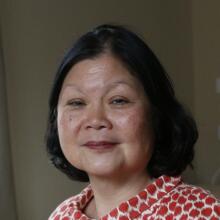I write on the issue of the Theology requirement at the University of Notre dame, which is currently under discussion as part of the school’s ten-year curriculum review. I share these thoughts in response to the administration’s call for input, but I also see this topic as relevant to all Catholic universities.
When Notre Dame recruited me to the deanship of the business school, it was a very difficult decision. I would be leaving a community that granted all my degrees, funded six of seven years of my study, promoted me through the ranks and welcomed me into the central administration with an intent to prepare me for leadership of large land-grant universities. There was only one reason to leave: to act on the mission of a Catholic business school where God would be an integral part of how our students would approach their business careers.
After much foot-dragging, the decision came at one weekday Mass when I gained this unexplainable clarity that we must “leave home” and journey forth to serve God.
At the Mendoza College of Business, I led with two priorities. The first was to strive for excellence in what we do. It is the promise I made to Fr. Ted Hesburgh when he imparted the first of two pieces of advice: “Mediocrity is not the way we serve the Blessed Mother.” I also felt that if we were to witness to the Catholic way of succeeding, we would need the credibility that excellence confers. The other priority was formation work: engaging our students to remember that whatever work they undertake, they do so as the people of God, made by him, loved by him, gifted by him and called into service to bring His abundance to all.
At commencement each year, when I shook the hands of over a thousand business graduates, I never worried about whether they would succeed professionally, but whether they would know deeply the importance of faith, continue to work on it, let it be their compass and strength, and come back to it when they stray. Achieving the top ranking in undergraduate business education was not fueled by the desire to join some elite academic club, but to keep faith with the mission of the university and the students, parents, colleagues, donors, alumni who cherish and made sacrifices to sustain this mission. I signed my correspondence “Yours in Notre Dame” to remind myself of the privilege and responsibility of an institution that bears the Blessed Mother’s name and continues her work to make God real in this world.
But our students cannot serve well what they do not love; they cannot love deeply what they do not know. This is the basis behind our earliest catechism lesson that the purpose for a Christian is to “know God, love God and serve God.” This sequence is not accidental. While God cannot be contained by human imagination, he seeks to be known. Theology is a discipline whose constitutive focus is the revelation of God through Scriptures, or the “Word of God” as the lector and priest intone after the Mass readings; and through the Christian tradition whereby God engages men and women of faith to develop a living body of teachings or doctrines, inspired by the Holy Spirit, to help us live as his people, to make his word our flesh.
St. Pope John Paul II taught in “Ex Corde Ecclesiae” that God, along with man and nature, must be a part of the Catholic University’s search for the whole truth. God is “the Way, the Truth and the Life.” Thus the distinguishing commitment of a Catholic university in its search for truth is the study of Theology. Through investments in resources and emphasis in the curriculum, the university’s mission is to provide the intellectual foundation for students to understand, appreciate and interpret the revelation of God. This is the robust grounding needed for an adult faith, one that progresses beyond grade school catechism, to accompany and inform the Catholic students’ intellectual growth in their professions, for the composition of meaning, purpose, commitment and vocation. Theology requirements are analogous to the keystone that holds the academic architectural archway together, not an offering amidst a buffet of dizzying choices to be assembled for the appetite of the day.
A book that has profound effect on my life choices is A People Adrift, by Peter Steinfels. In it he identifies the crisis in the church as the passing of the torch to lay people who are not properly catechized. Studies have shown that even students on Catholic campuses cannot name all seven sacraments and that Mass attendance does not exceed the general average. Professor Christian Smith of Notre Dame offered a profile of Christian youth who sees God vaguely in the role of a “divine butler,” a kindly uncle of sorts with a ready ear and occasional generous benefactions. But God is not part of their lives and the concepts of sin and grace, the cross and resurrection, mercy and repentance, incarnation and transcendence have no bearing on their understanding of God. It is a relative of the form of new spirituality described in Eat Pray Love.
It’s tempting to blame our secular culture for these problems, but we must cast the light closer to home. We have to assess the quality of our catechesis when Catholics, particularly those who go through Catholic universities, can find God in almost everything, but not in Scriptures and the sacraments. To form leaders of faith, to be the places where the church does her thinking, to fight against the caricature of God proposed by our secular culture, Catholic universities must offer more than “Theology Lite.”
In all the efforts to define learning goals for a Catholic university, how about “to know God” as a starter?
Carolyn Woo is the director of Catholic Relief Services.








